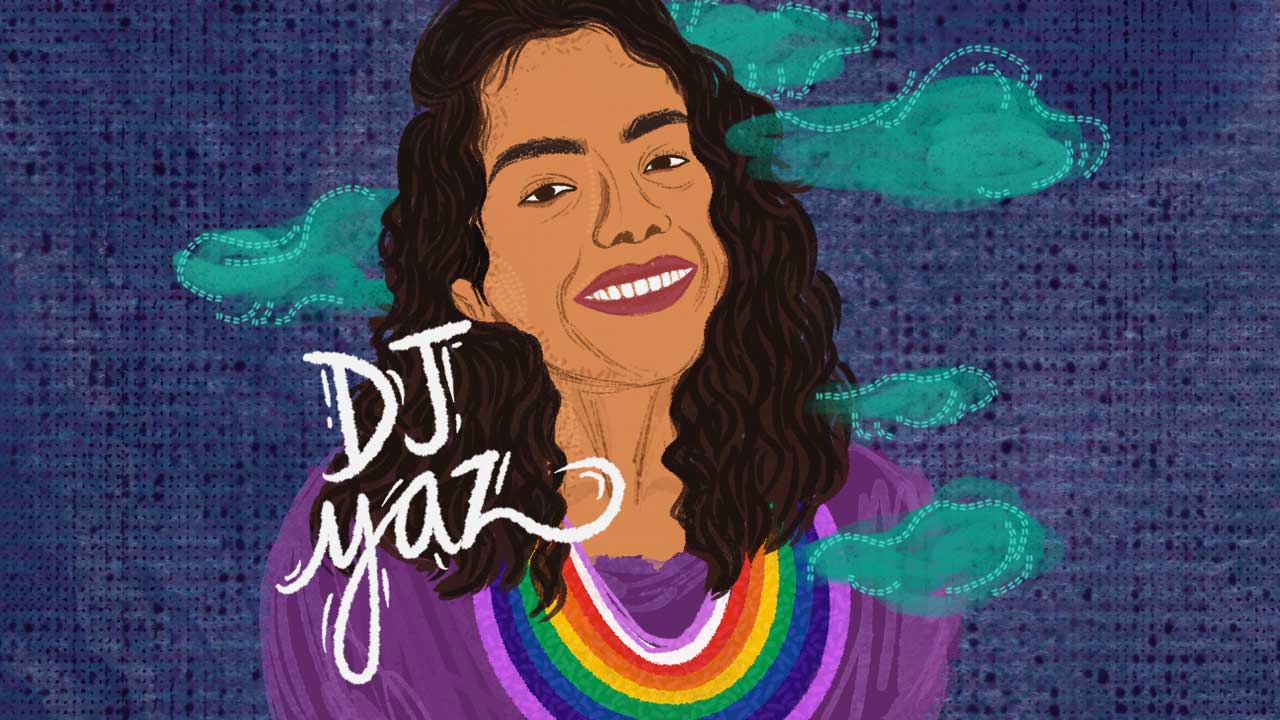
Track 1
Mixtape no.1 - Research and Explainers
Findings of a survey conducted on social media platforms in different countries of Africa: https://internetwithoutborders.org/jif2019-les-cyberviolences-sexistes-… This is great because online gender-based violence against women in West and Central Africa is little mentioned and measured. This study was carried out in 18 countries in these two regions of Africa and truly offers an idea of the scale of the phenomenon in this part of the world.

Track 2
Mixtape no.1 - Research and Explainers
Afrocyberféminismes is a research project that questions the contemporary challenges posed by digital technologies with regard to Africa and its diasporas by exploring the place of gender and race: http://afrocyberfeminismes.org/ Everything about this initiative is amazing. The color palette, how the website looks “young” and adapted to our time. They also have many events related to gender, race, feminist internet, digital safety, and more. I love the intersection between all the different themes. It is based in Paris, France but covers Africa and its diasporas, which being 100% feminist.

Track 3
Mixtape no.1 - Research and Explainers
Research Report Promoting State Responsibility for Technology-Facilitated Gender Based Violence against Women in Morocco Action: https://mrawomen.ma/wp-content/uploads/doc/TFGBV%20Report%20Final%20Eng… This is literally the only study done in Morocco based on a survey on OGBV. Also it reflects on how the majority of Moroccan women women interviewed have been victims of OGBV. A lot have also decided to remain silent because of the way it is perceived by society. The sad reality is that women fear of being seen as responsible, and others have told that they have been punished . This summary also showcases how little action is being taken against the aggressor.

Track 4
Mixtape no.2 - In Their Own Words
Au Maroc, les femmes victimes de cyberharcèlement peinent à « briser le tabou » https://www.lemonde.fr/afrique/article/2020/03/15/au-maroc-les-femmes-v… Great mentions to legal vs societal contradictions. The penalties for digital violence go up to three years in prison but many women are unaware of the provisions of this law. Also loved the mention to feminist movements who widely criticized this law for its shortcomings. The article also mentions how Moroccan society, which is steeped in traditions and religious values, and where women that are raped or harassed are often considered responsible, the reactions of families are often impregnated in victim blaming, followed by sanctions punishing the victim instead of punishing the aggressor.

Track 5
Mixtape no.2 - In Their Own Words
Video interview with a Moroccan former victim of OGBV: https://www.voaafrique.com/a/le-dilemme-des-marocaines-victimes-de-cybe… This interview just shows the sad reality as the case of Loubna is not an isolated one. Her ex-fiancé posted intimate photos of her on social media because she left him. Of course she is the one who felt “guilty”, her family ostracized her and she had to quit his job. The big issue is that in Morocco relationships outside of marriage are punished by article 490 of the penal code, although there is a law protecting in case of harassment (including cyber harassment), Loubna almost faced jail time. It is important to understand this contradiction but also all different repercussions on women victims of OGBV: social, economic, or even legal.

Track 6
Mixtape no.2 - In Their Own Words
Moroccan web-series on Youtube about teenage girls experiencing OGBV: https://www.youtube.com/channel/UCKzfxv2eXXkA_Y4xDqPau9A/videos Very impressed by the effort of making a mini web-series about OGBV. I feel like this is the best way to sensitize younger generations. The setting takes place in a high school in Morocco’s economic capital Casablanca. Not only does it show how OGBV can be harmful, but also gives solutions to fight it, how to protect one’s self and how to contact competent authorities.

Track 7
Mixtape no.3 - Making Plans
« Stop violence numérique » is campaign calling out technology based violence against women launched by Tahadi Association for Equality and Citizenship (ATEC) in Morocco: https://atec.org.ma/stop-violence/ This is the first time that in Morocco action is being taken to protect women against OGBV. ATEC is also offering judicial and psychological support, they have been working on the topic since 2016 but since there has been a raise in cases starting the quarantine. What I loved the most about it is that they are adapting to the digital world and launched their campaign in a very innovative way through an app available on the App Store. ATEC is also putting in place a mobile unit targeting schools and vocational training centers to educate on the topic of digital safety.

Track 8
Mixtape no.4 - Little Wonders
Movement Diha Frassek, created by 3 Moroccan friends to stand against harassment and cyberbullying for girls in Morocco: https://www.instagram.com/mouvement.dihafrassek/ During the month of Ramadan and because of the pandemic/quarantine (I guess some people were so bored they wanted to harm others), there has been a raise in sharing nonconsensual images by both former intimate partners and strangers. Many instagram pages were created just to share images of young women and girls. Many of the victims, often underaged have been touched by it which undoubtedly affected their mental health (many had suicidal thoughts). Diha Frassek is a youth led and youth serving movement, that has raised awareness on OGBV, offered assistance, and helped break from victim blaming and typical societal stereotypes according to which sending nudes is “haram” (sinful) or “hchouma” (shameful).

